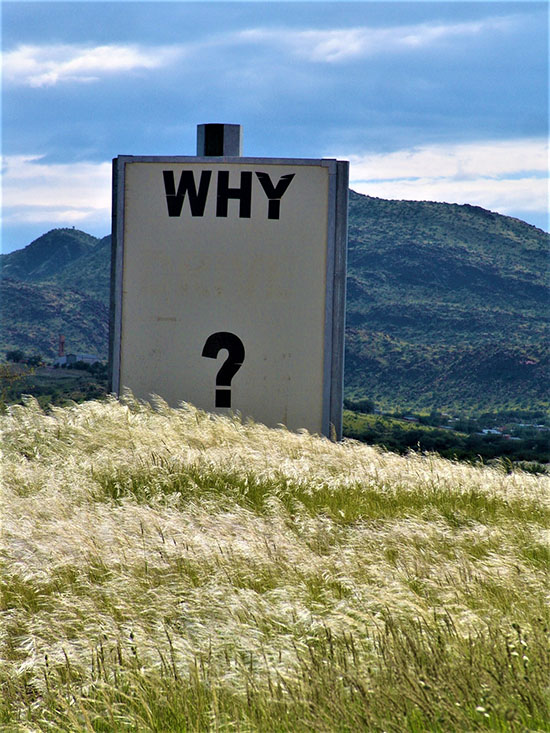Why aren’t your clients interested in sustainability?

I’ve been asking myself this question over and over again: why aren’t clients interested in sustainability?
A couple of months ago, my eight-year-old daughter told me off because we were still using plastic toothbrushes. I’m a sustainability consultant, and sustainability has been my daily life for over a decade now, and yet, I hadn’t thought about the impact of disposable toothbrushes. She learnt at school that they are bad for the environment, and end up choking fish in the ocean. Well, that turned out to be not so accurate, but I got the gist. It’s undoubtedly true that there is too much plastic in our oceans, so I immediately went and bought £3.50-a-pop bamboo toothbrushes. Eye-wateringly expensive compared to Wilko’s four for £1, but it’s a conscious choice we are making as a family. She is right, and so I went with it.
I wonder if developers have inquisitive children asking them: daddy, mummy, what is the building you are building made of?
Or is money so powerful that it turns off even their deepest rooted beliefs and values?
Having looked closely at the business case for sustainability for the Green Gorilla Masterclass Programme, I’ve seen a definite shift in the perception of investing in sustainability. For the time being at the higher level, investors are now able to track the high performers on ESG (environmental, social and governance factors) and are correlating better financial performance with better ESG performance. Investors are beginning to value them more highly. Arabesque and the University of Oxford reviewed the academic literature on sustainability and corporate performance and found that 90% of 200 studies analysed conclude that good ESG standards lower the cost of capital. Furthermore, 88% show that good ESG practices result in better operational performance and 80% show that stock price performance is positively correlated with good sustainability practices.
However, at the level we, the sustainability consultants, are working, the majority of clients are still refusing to embrace the change.
I concluded that there are at least four reasons why our clients don’t ‘get’ sustainability, and they are not all to do with money:
Apathy mixed with busyness – clients are not tuning in with what’s happening at a global level. The penny hasn’t dropped yet with regards to connecting their business activities with the climate change crisis. They have enough on their plate to keep their heads just above water to also bother with ethical concerns.
Unawareness – perhaps no-one has managed so far to explain to them the business case for sustainability in a way that made them fully understand. They don’t know that sustainability can make them and save them money, big time. Sustainability consultants often jump into explaining the finer details (how wide should the cycle lanes be, the fact that they need to engage with a suitably qualified ecologist ASAP, how many products are covered by EPD certificates, and so on) without providing the bigger picture. Sustainability consultants are often preoccupied with achieving the final BREEAM or LEED rating and certificate, but fail to see the bigger picture themselves. So how can they explain that to their clients?
Fear of change – it’s a very basic human instinct to preserve the status quo. Neuroscientist Dr David Rock is helping organisations examine how people process change to smooth out the hurdles. He created a model to help people assess their initial reaction to change, helping them pin point exactly why they may feel threatened by the change. So when your clients refuse to embrace sustainability, they probably have one or more of these five concerns:
Is the change going to alter my perceived status?I’m not sure what things will look like in the future if we adopt the change.What if I lose control over what I’m doing? Who will I be working with and what will that change? Is it fair?
Biased opinion – they might have a wrong perception around the actual costs of implementing sustainability, and they might think it will be a lot of effort for very little gain. They might be asking themselves and you: what are the advantages? What is the return on investment?
The reason why I think it’s important to understand your client’s concerns and why they have an initial negative response to sustainability is that you will be able to respond better to them if you know what these concerns are. You may even manage to swing their perception from negative to positive.
On a personal level, people are generally affected by bad news around climate change, but on a business level, they might think that it isn’t worth the effort they would put in, and that unfortunately, there are other more pressing issues to deal with.
It is your job, as a sustainability consultant, to turn their concerns into opportunities, and to respond to their needs with your well-honed sustainability pitch that sells them sustainability as the key to put their concerns at rest.
If you don’t know how to do that, get in touch. Green Gorilla provide invaluable, expert-lead coaching and training to empower sustainability consultants to become stronger, more confident and start enjoying their job more.
